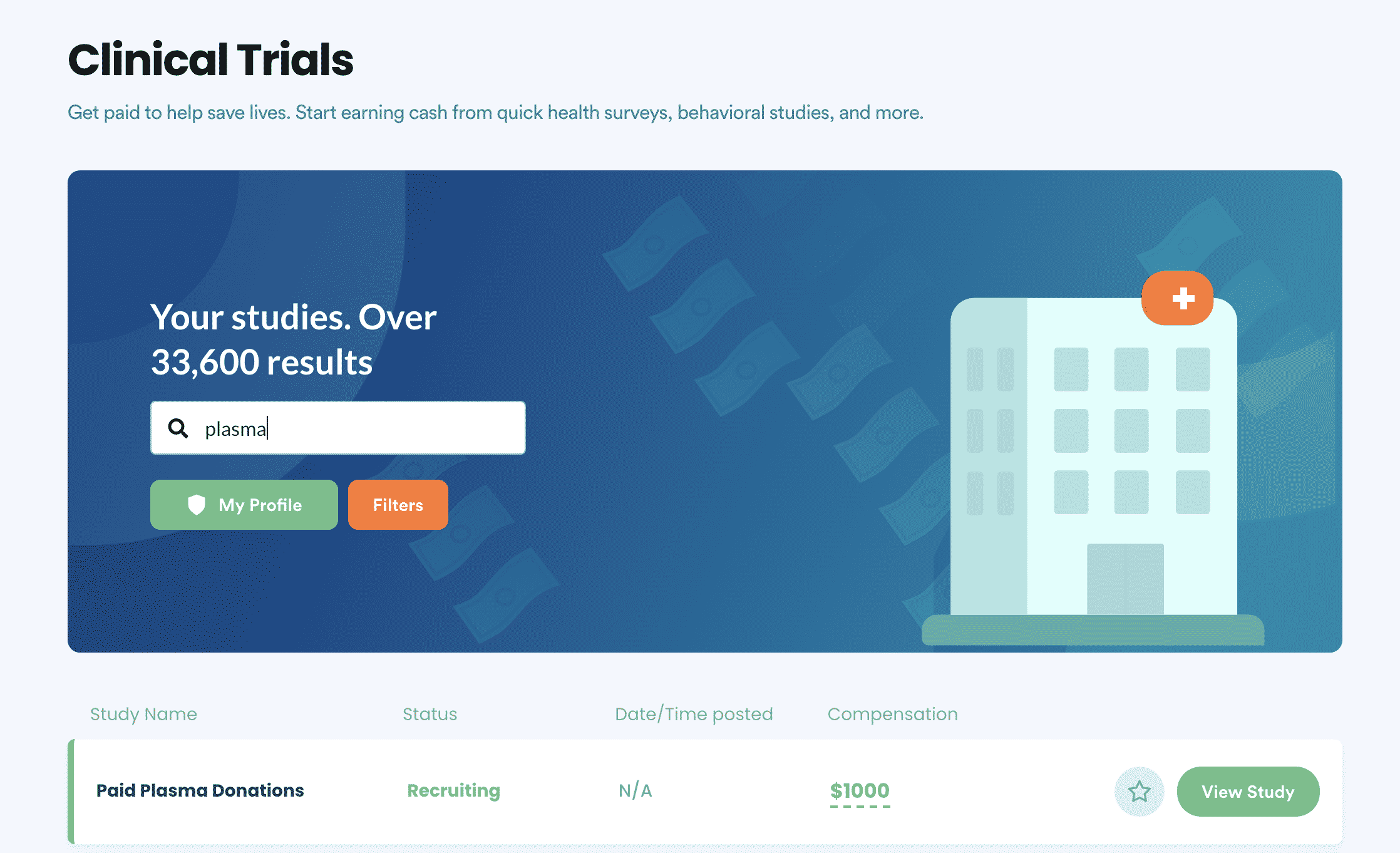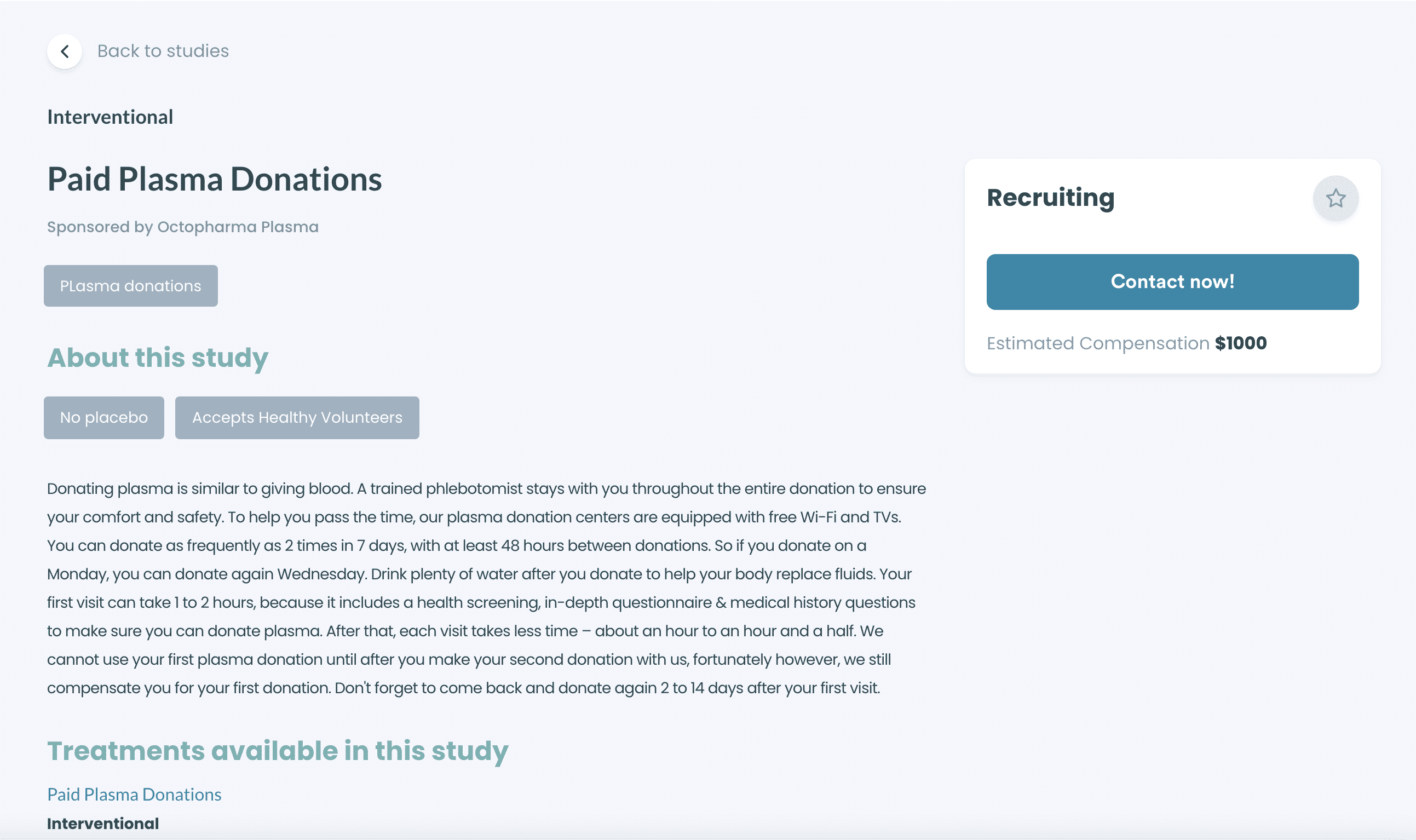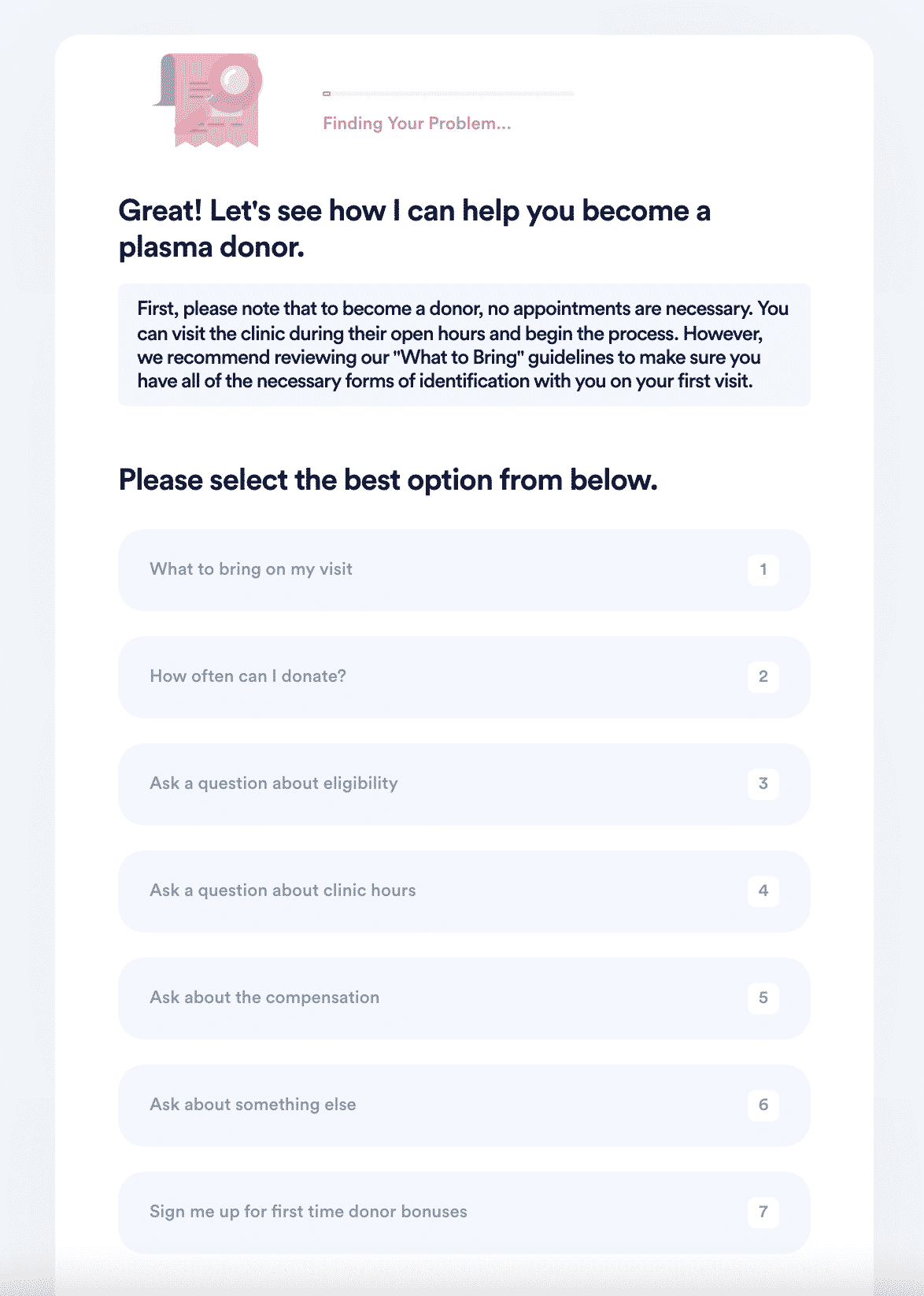Who Can Donate Plasma?
If you're reading this, you probably already know two things: Those can make a good chunk of change each month, and they're considered to be heroes by the people whose health depends on this essential blood component.
But you might not know if you're eligible to donate plasma, and you probably have questions about the process:
- Plasma donation requirements
- How much can you make in donating plasma?
- How long does it take to donate plasma?
- How often can you donate plasma?
You might also want to know how to avoid the hassle of finding the right plasma donation center because not all of them pay the same—and some of the best don't necessarily advertise. That's why DoNotPay can help you find and compare plasma donation centers, saving you time and helping you earn money.
Plasma Donor Eligibility Requirements
Every plasma donation clinic has its requirements, which is why it's a good idea to shop around for the plasma donation center that's right for you. Those are required to get a physical exam by a general practitioner, while others can provide an exam on-site. All centers will give you a questionnaire, then check your heart rate, weight, and other vital statistics before each donation session to make sure you remain eligible. There's a good chance that if you're stressed, haven't eaten, or have taken a trip overseas, your eligibility status can change. It means that you can show up and get told you can't donate that day.
The Seven Most Common Eligibility Requirements for Donating Plasma
Here's what the plasma donation center staff will want to know before allowing you to donate:
- Are you an adult age 18 or older?
- Do you weigh more than 110 pounds?
- Are you a sexually active gay male? If so, you will likely be turned away.
- Have you had piercing or tattoo work done within the past 12 months? If so, you probably can't donate.
- Is your blood pressure between 90/50 and 180/100?
- Is your temperature between 96.4 and 100.0?
- If you have diabetes, are your blood sugars well-managed?
These don't factor in any viruses or bacterial infections detected in your system. While you can't donate if you have HIV, you can if you have HSV-1 or HSV-2, but you must be symptom-free. And yes, you can donate plasma if you are HPV positive. People often ask if they can donate plasma when they've had the vaccine for COVID-19 and its variants. You can, if you haven't experienced any associated symptoms. You can't donate if you have tested positive for COVID. Remember, though, that requirements vary from location to location.
The following are frequently asked questions about plasma donation:
| How Much Do Plasma Donation Centers Pay? | Plasma donation centers vary in their payouts, and individual centers have different per-visit donation amounts. For example, a center might have a "first-time" payout that's much larger than subsequent payments, or they might wait until you've reached a certain number of donations before giving you a new-donor bonus. You can expect anywhere between $20.00 and $80.00 per visit, so you do want to do your homework to find the place that pays the best. |
| How Often Can You Donate Plasma? | According to the United States Food and Drug Administration (FDA), the standard donation frequency is up to twice in seven days, with at least 48 hours between donation sessions. Your primary care physician or the medical staff at your chosen plasma donation center may have recommendations specific to your physical condition. |
| How to Find a Plasma Donation Center That's Right for You | If you want to find out how to donate plasma in your town, but you want to pick a facility that will accept you and pay well, you'll have to do some homework. Here's what you should know:
Google "plasma centers near me" and visit the websites that come up in your search results. You'll quickly learn that while many plasma donation websites will prominently display their best-case new-donor bonuses, they tend to make it difficult to learn how you can reach the highest payout possible. They want to get you in the door before you find a competing donation center, and most centers won't tell you how much you'll make until you've:
That's a big commitment to get that bonus, and you could have earned more from the plasma center down the road—in less time—if you had a service like DoNotPay doing the tedious, headache-inducing research for you. |
DoNotPay Makes Researching Plasma Donation Centers Easy
Skip the searching and scrolling. In just three easy steps, DoNotPay will find payment estimates and eligibility requirements from plasma centers near you and can even find out each facility's donation process, so you know what to expect from your visits.
Have questions about bonuses, donation hours, or your specific medical issues? DoNotPay will help you contact the facility so you can find out more.
Here's how you can use DoNotPay to become a plasma donor:
- Search "plasma donations" on DoNotPay and find the nearest donation clinic through our clinical trials product.

- Select the "Contact Now" button to learn more about eligibility criteria, contact the clinic with questions, or sign up for first-time donor bonuses.

- Verify your information and submit your inquiry! DoNotPay will contact the clinic on your behalf and make sure your questions get answered.

What Else Can DoNotPay Do?
DoNotPay can help you with all sorts of health-related paperwork, such as:
- Create an advance directive for important health care decisions
- Find and apply to clinical trials
- File an insurance claim
- Request sick leave from your employer
Be Among the Millions of Heroes Who Can Donate Blood Plasma
Let DoNotPay help you find out today. Before you know it, you could be making hundreds of dollars a month while helping people with rare diseases live a better quality of life.
 By
By